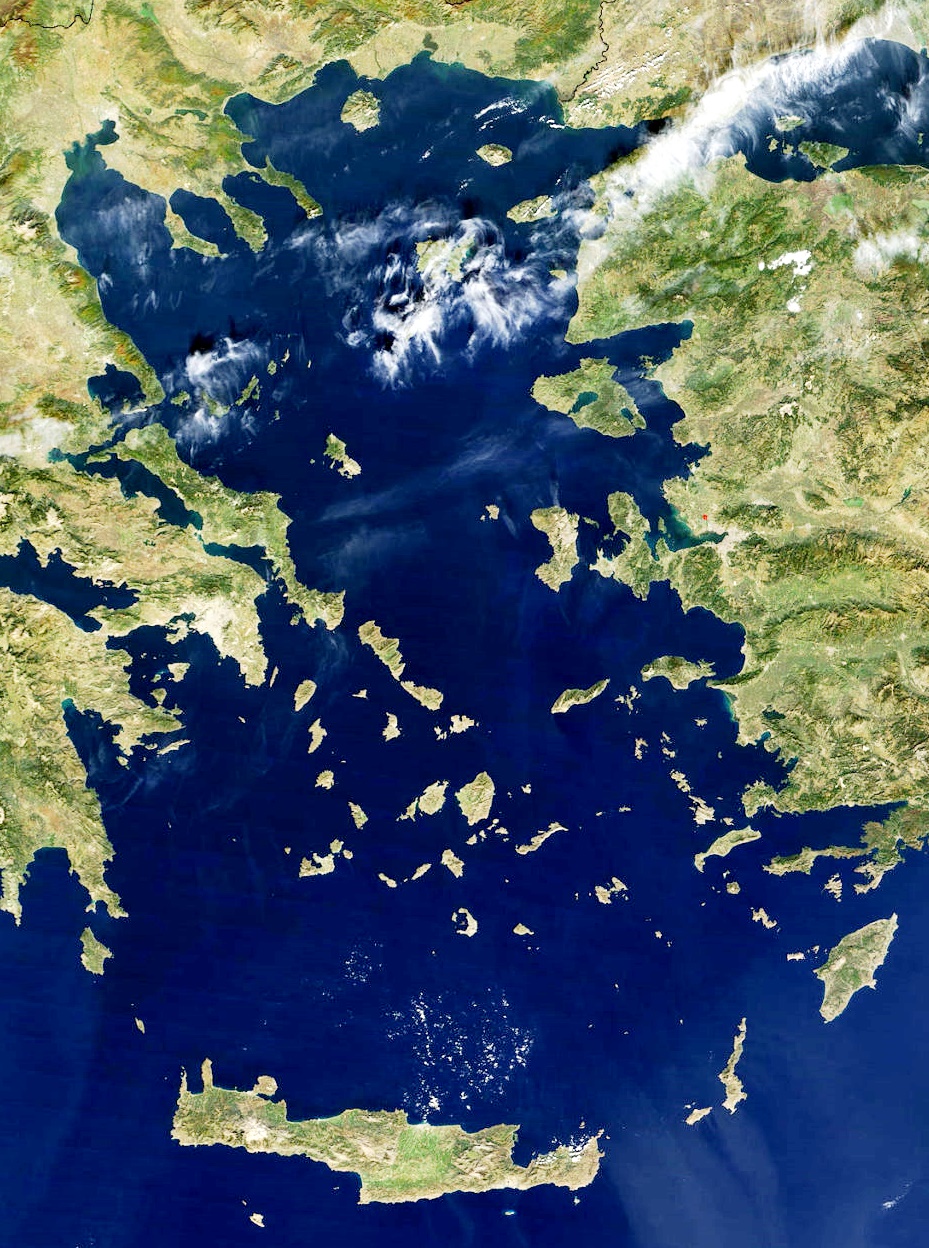
Archipelago
An archipelago (/ˌɑːrkəˈpɛləɡoʊ/ AR-kə-PEL-ə-goh),[1] sometimes called an island group or island chain, is a chain, cluster, or collection of islands, or sometimes a sea containing a small number of scattered islands.
"Island chain" redirects here. For the strategy, see Island chain strategy. For other uses, see Archipelago (disambiguation).Examples of archipelagos include: the Indonesian Archipelago, the Andaman and Nicobar Islands, the Lakshadweep Islands, the Galápagos Islands, the Japanese archipelago, the Philippine Archipelago, the Maldives, the Balearic Islands, the Åland Islands, The Bahamas, the Aegean Islands, the Hawaiian Islands, the Canary Islands, Malta, the Azores, the Canadian Arctic Archipelago, the British Isles, the islands of the Archipelago Sea, and Shetland. Archipelagos are sometimes defined by political boundaries. For example, while they are geopolitically divided, the San Juan Islands and Gulf Islands geologically form part of a larger Gulf Archipelago.[2]
Etymology[edit]
The word archipelago is derived from the Ancient Greek ἄρχι-(arkhi-, "chief") and πέλαγος (pélagos, "sea") through the Italian arcipelago. In antiquity, "Archipelago" (from Medieval Greek *ἀρχιπέλαγος and Latin archipelagus) was the proper name for the Aegean Sea. Later, usage shifted to refer to the Aegean Islands (since the sea has a large number of islands).